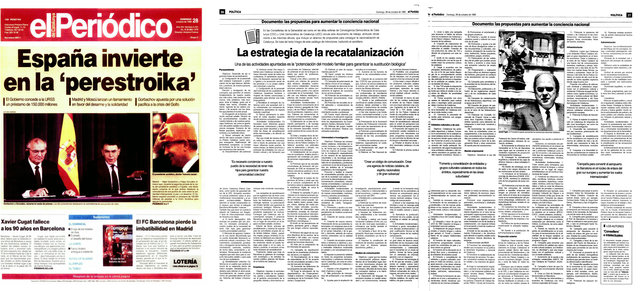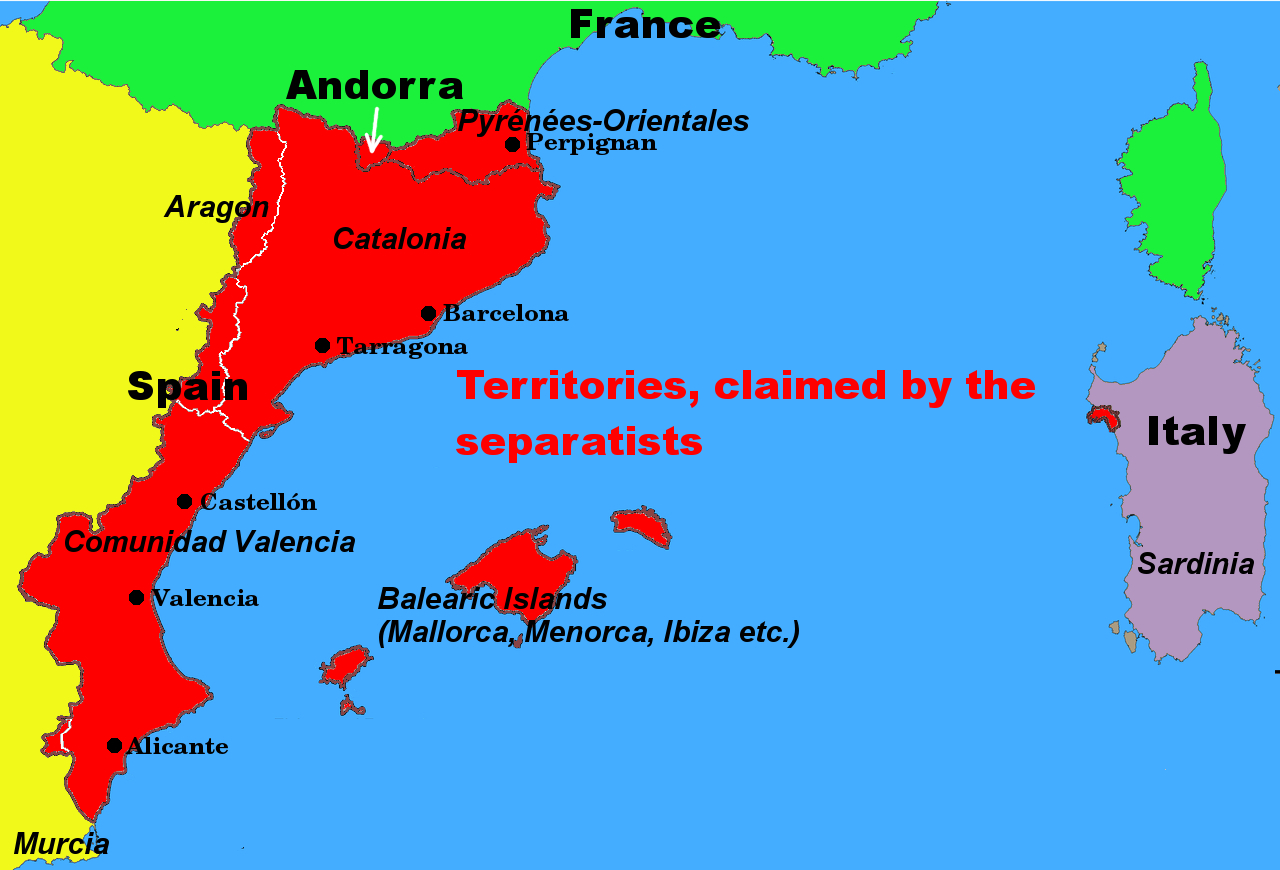Understanding multilingualism
If you are poor, you hardly need Spanish.
September 12, 2021
Vicent Marzá, Valencian Minister of Education said on Monday: „The number of pupils taught in Valenciano is increasing from 28% to 61%.“ The Region of Valencia has removed the „dividing lines“ and „now all children would have the same opportunities to learn all languages and of course first and foremost our language, Valenciano.“
The percentages from 28 to 61% refer only to the public schools. Those who can somehow afford financially send their children to a private school, because „our“ language is not primarily Valenciano and where are the „dividing lines“?
The extensive political paralysis of the Spanish due to the Corona policy, which is more moderate here than in the UK, provides the Valencian government with an opportunity to implement its separatist objectives.
It cannot be repeated often enough. In all Spanish autonomous regions, the mother tongue of the majority is Spanish and not the respective regional language. This means that this is also the case in Valencia and that Valenciano is not „our“ language.
This fact is also reflected in the Valencian Constitution, which, like the other autonomous constitutions, states that there are two official languages (three in Catalonia).
Article 3 of the Spanish Constitution states:
„1. Castilian Spanish is the official Spanish language of the State. All Spaniards have the duty to know it and the right to use it.
2. the other Spanish languages are also official languages in the respective Autonomous Communities according to their statutes.
3. the richness of the different linguistic expressions of Spain is a cultural heritage that must be particularly respected and protected.“
So no one has the obligation to know an autonomous language. It goes without saying that everyone has the right to do so, but from this does not derive the right to impose one of the autonomous languages on all Spaniards.
Ultimately, it is a question of breaking up the Spanish state. In Catalonia this is openly expressed as separatism, in Valencia it is an open secret. This becomes clear in umpteen little details, as was also made clear in the latest announcement by Ximo Puig, the Valencian president, who wants to ensure in Valencia „that the TV programmes APunt (Valencia) and TV3 (Catalonia) can both be seen on the digital applications of both regions. Of course, TV3 keeps using the terminology of 'Catalan countries' to include the Community of Valencia and the Balearic Islands together with Catalonia in a territory outside the rest of Spain. A practice that is reflected daily in TV3's weather maps.“
It is also no secret that Marzà and his accomplices are increasingly trying to Catalanise Valenciano, that is, to replace Valencian expressions with Catalan ones. This is definitely perceived by many Valencians as an attack and not as protection of their form of expression, as required by paragraph 3 of Article 3 of the Spanish Constitution.
This is not what the separatists in the autonomous communities are after all concerned with. The aim is linguistic indoctrination in schools to promote extreme nationalism, and the best place to start is with the youngest and least educated, because they are poor.
In this respect, the Valencian government has succeeded in enforcing the teaching of Valenciano in secondary schools (12-16 years). Since the constitutional courts stipulate that at least 25% of Spanish be used as the language of instruction, this is often banished to music, sports and arithmetic.
Therefore, everyone who can afford it tries to place their child in a private school with instruction in Spanish. The percentage of public schools in Spain is only 67.2%. Children whose parents cannot afford a private school are left with Valenciano.
A dividing line is thus created between all Spaniards who can reasonably communicate in Spanish and politically follow state affairs and those who can only do so by following the media, which explain Spanish politics to them in Valenciano or the corresponding regional language.
The Minister of Education's reference to English is pure hypocrisy. Anyone who knows the situation in Spain knows that there are not enough English teachers available. Sometimes the few that are there are also dismissed, which is what hundreds of parents in Teruel were protesting against now.
| | | | Click here to subscribe or cancel your subscription |
Myths and deceptions of Catalan nationalism

Here you'll find the translation
The strategy of recatalanization
 1980 the Spanish journal "El Periodico" published a secret document about the strategy of the Catalan government. It shows in a frightening way the actual spiritual world of the separatist leaders.
1980 the Spanish journal "El Periodico" published a secret document about the strategy of the Catalan government. It shows in a frightening way the actual spiritual world of the separatist leaders.Now it is available in english translation.
Pancatalanism
the separatist's imperial claim
 The Catalan government exports the conflict into communities with Catalan population, supporting all efforts of the separatists including financial means to destroy Spain.
The Catalan government exports the conflict into communities with Catalan population, supporting all efforts of the separatists including financial means to destroy Spain. An important tool is the establishment of a language dictatorship that is not afraid to use the same means as Franco.
Separatist indoctrination

Click here to read the study
Language imposition and democracy

An essay in 6 parts on the potentially violent effect of language imposition containing contributions from South Africa, Catalonia, Ukraine and France.
go to part 1
Publications
 The title says: "Catalonia, a conflict is exported. Insights of a migrant"
The title says: "Catalonia, a conflict is exported. Insights of a migrant"Sorry, up to now, this book is only available in German. However, drop us a line, if you are interested to learn more Contact.
